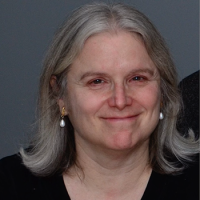
Changing our Skin: Creating Collective Knowledge in American Classrooms
PUBLISHED:AUTHORS: Mara Krechevsky
Resource Summary
Abstract: In this essay, the author explores the notion that the focus of learning in classrooms and schools extends beyond the learning of individuals to create a collective body of knowledge that is larger than what any one person knows. This idea was examined in a collaboration between Project Zero researchers and educators from the municipal preschools in Reggio Emilia, Italy, around understanding, supporting, and documenting individual and group learning. The author draws on the experiences of classroom teachers in Massachusetts to suggest at least four key components in creating collective knowledge: (a) rethinking the nature of the learning task; (b) fostering a pedagogy of relationships; (c) addressing four kinds of learning; and (d) documenting student and teacher learning.


-
-
-
-
-
-
Support PZ's Reach